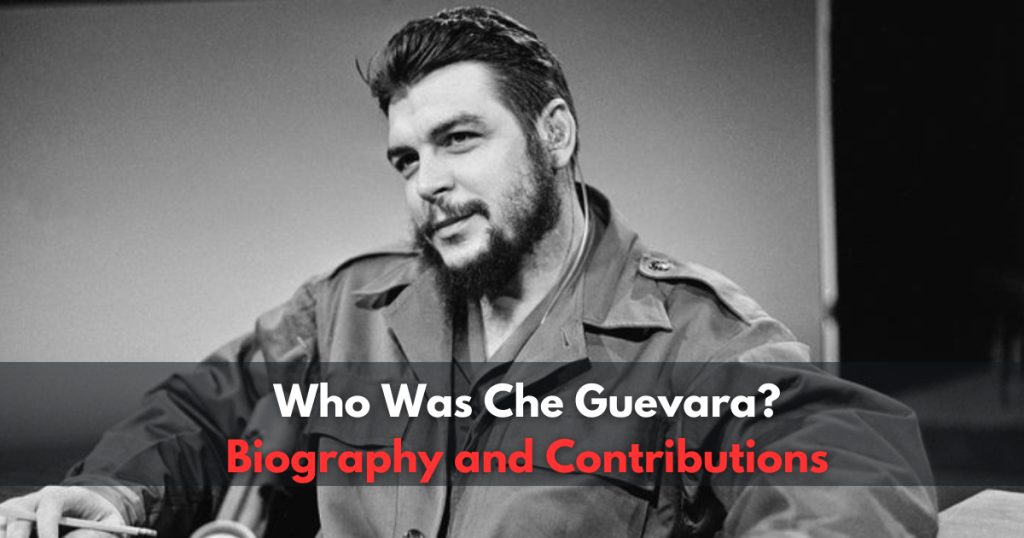Che Guevara, born Ernesto Guevara, is a polarizing, celebrated figure in modern history. Some revere Guevara as a hero; others condemn him as a radical. His image has become a timeless symbol of rebellion. This article explores Che Guevara’s life, beliefs, and contributions. It examines his global impact and complex legacy.
Early Life and Education

Childhood in Argentina
Ernesto Guevara de la Serna was born on June 14, 1928, in Rosario, Argentina. He was the oldest of five children in a middle-class family. Despite struggling with chronic asthma, Guevara was a determined and athletic child. His early exposure to social and political issues shaped his views. It also fostered empathy for the marginalized.
Academic Background
Guevara attended the University of Buenos Aires. He studied medicine, focusing on leprosy and other diseases in poor communities. His medical studies aimed him at a career in healthcare. But his travels in Latin America changed his political beliefs.
The Journey That Changed Everything
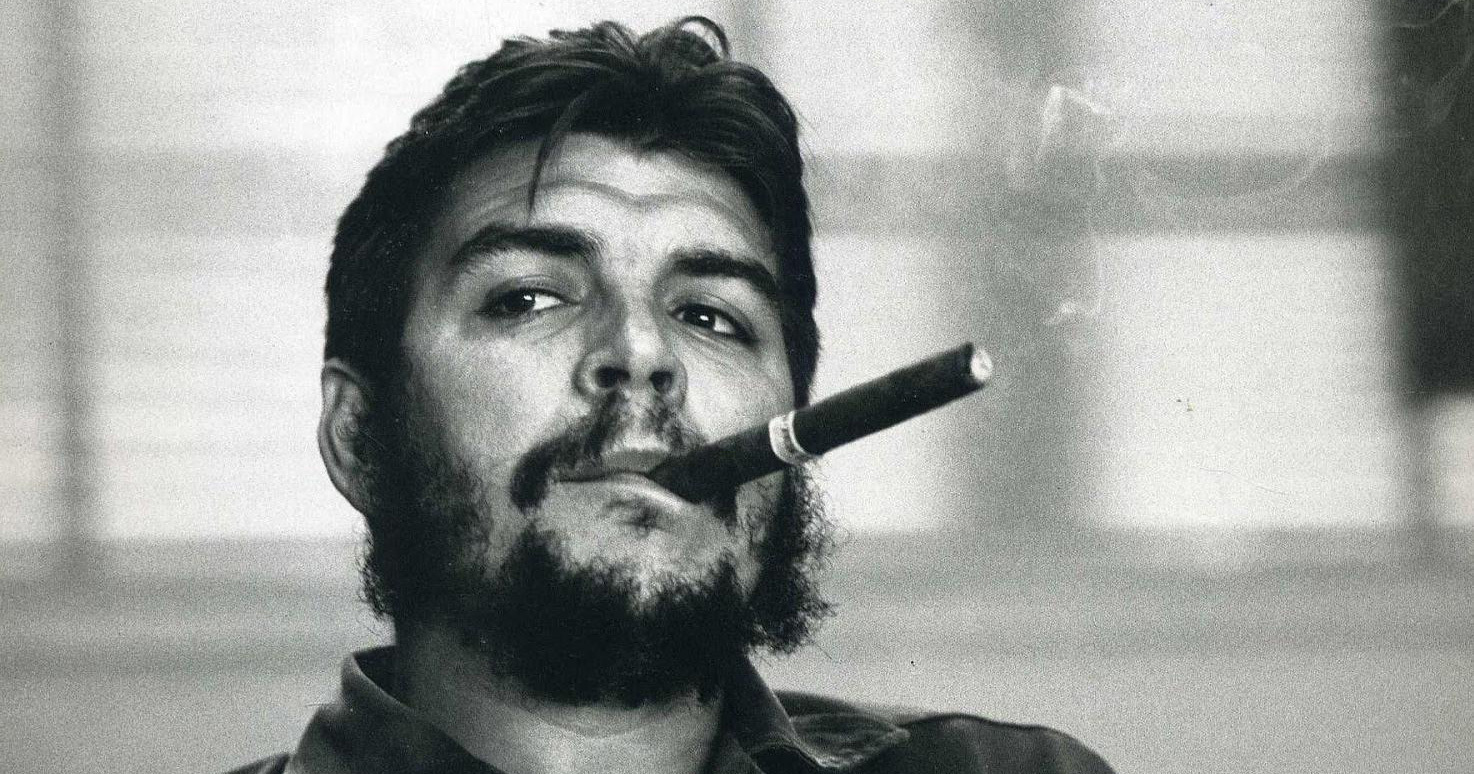
Motorcycle Journey Through Latin America
In 1952, Guevara and his friend, Alberto Granado, rode a motorcycle across South America. The journey took them through Chile, Peru, Colombia, and Venezuela. There, Guevara saw staggering poverty, inequality, and injustice. This experience changed his worldview. It made him believe that we must change the system to end people’s suffering.
Influence of Marxism
In his travels, Guevara met revolutionary thinkers. They introduced him to Marxist ideas. By the time he returned to Argentina, Guevara had embraced Marxism. He believed capitalism caused poverty and oppression in Latin America.
The Cuban Revolution: Che’s Rise to Fame
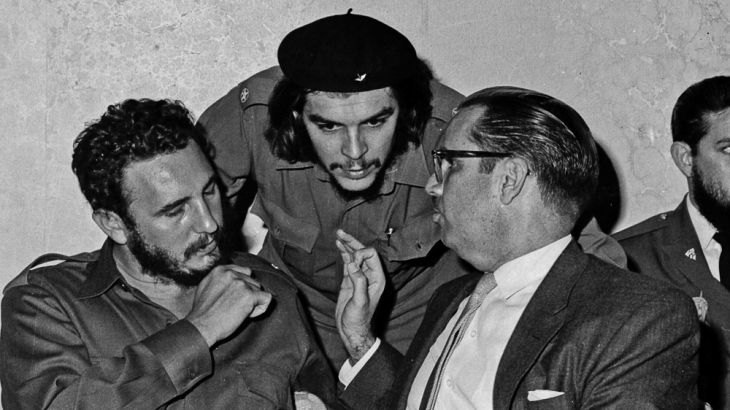
Meeting Fidel Castro
In 1954, Guevara went to Mexico. There, he met Cuban revolutionary Fidel Castro and his brother, Raúl. The two men wanted to free Cuba from President Batista’s authoritarian rule. Guevara joined Castro’s 26th of July Movement. He devoted himself to the revolutionary cause.
Guerrilla Warfare and Leadership
In 1956, Guevara and Castro, with a small group, landed in Cuba. They aimed to start a guerrilla war against Batista’s forces. Guevara quickly rose through the ranks. He had a knack for military strategy. He inspired loyalty among his fellow fighters. His role in key battles, like the Battle of Santa Clara, helped the revolutionaries win. By 1959, the movement had succeeded, and Batista fled the country.
Ideals and Contributions to the Cuban Revolution
Guevara’s commitment to social equality became clear in his leadership style. As a commander, he enforced strict discipline and promoted education. Guevara’s work in the Cuban Revolution went beyond the battlefield. He helped shape the new government’s policies. He advocated for land reforms and other measures to benefit the working class.
Post-Revolution Contributions: From Revolutionary to Diplomat

Economic Reforms and Industrialization
After the Cuban Revolution, Guevara held several key roles in the new government. They included Minister of Industry and head of the National Bank. He pushed for quick industrialization to cut Cuba’s reliance on the U.S. Guevara’s economic policies aimed to promote self-sufficiency. They were controversial and had mixed results.
International Diplomacy
Also, Guevara represented Cuba internationally besides to his economic duties. He traveled widely. He forged alliances with socialist countries like the Soviet Union and China. His 1964 speeches at the UN and other forums criticized U.S. imperialism. They called for solidarity among developing nations.
Advocacy for Global Revolution
Guevara’s belief in Marxist ideals went beyond Cuba’s borders. He argued that revolution was necessary to end colonialism and exploitation worldwide. His famous line, “The revolution is not an apple that falls when it is ripe. “Make it fall,” showed his belief that only radical action could achieve liberation. Guevara’s writings, including Guerrilla Warfare, influenced global revolutionary movements.
Guerrilla campaigns in Africa and Latin America
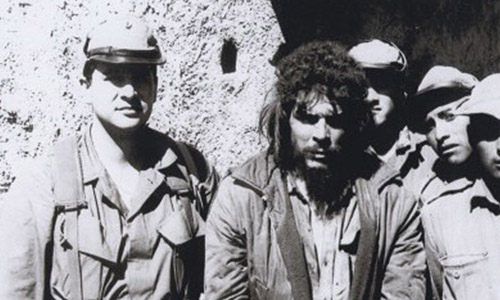
Mission to the Congo
In 1965, Guevara went to the Congo. He wanted to support a local revolution. But, the mission was a failure due to a lack of organization and support from local leaders. Guevara returned to Cuba, disheartened but still committed to the revolution.
Bolivia: The Final Mission
In 1966, Guevara secretly went to Bolivia to spark a revolution. He wanted to inspire neighboring countries to fight imperialism. The campaign faced many challenges. There was little support from local communities, and there were logistical issues. In October 1967, the Bolivian army, aided by the CIA, captured and executed Guevara. His last words reportedly were, “Shoot, coward; you are only going to kill a man.”
Guevara’s ideology and philosophical beliefs
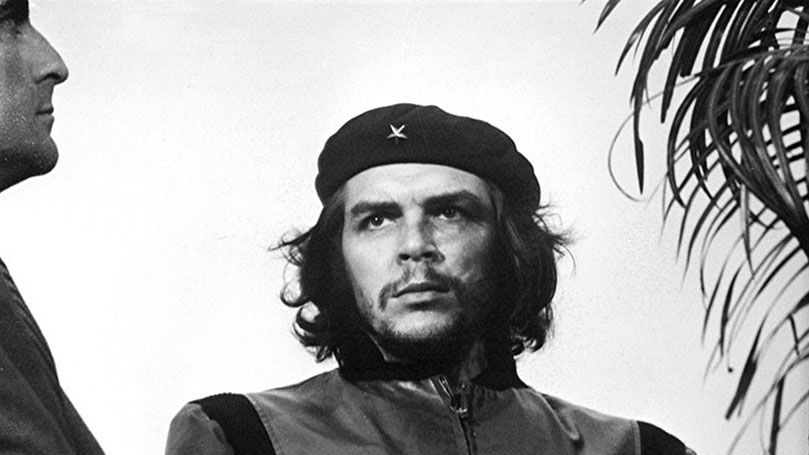
Marxist-Leninist Influence
Guevara’s ideological framework was deeply influenced by Marxism-Leninism. He believed that socialism was the only way to achieve social justice and equality. Guevara argued that armed struggle was necessary to overthrow oppressive systems. He believed that only through revolution could true equality be achieved.
“New Man” Concept
One of Guevara’s most influential ideas was the concept of the “New Man.” He envisioned a society where people were driven by a collective spirit. They would work for the good of society, not for personal gain. Guevara believed that changing human nature was vital to building a socialist society.
Legacy and Global Influence

Symbol of Rebellion
Guevara’s methods were controversial. But, he became a symbol of rebellion and resistance to oppression. His iconic image, captured by photographer Alberto Korda, is famous. It is one of the world’s most recognized symbols of defiance.
Influence on Future Movements
Guevara’s influence extended to revolutionary movements across Latin America, Africa, and Asia. His writings and actions inspired many activists. His image became a symbol for those seeking justice and social change. Guevara’s approach to revolution has been debated. But, his impact on global resistance movements is undeniable.
Criticisms and Controversies
Che Guevara’s legacy is not without controversy. Critics say his commitment to armed struggle caused needless violence and suffering. Some view him as a rigid ideologue who disregarded human rights in his pursuit of revolution. His supporters argue that his actions were necessary. They were responses to systemic oppression. They say his ideals sought a fairer world.
Conclusion: The Enduring Legacy of Che Guevara
Che Guevara’s life showed the power of conviction. It showed the value of sacrificing for one’s beliefs. Guevara’s methods and ideas are divisive. But he helped the Cuban Revolution. He also inspired global revolutionary movements. He is a symbol of defiance and he inspires those who challenge oppression and fight for justice. As history assesses his legacy, Che Guevara endures as a complex, iconic figure. He represents both the hope and the hazards of revolutionary ideals.


